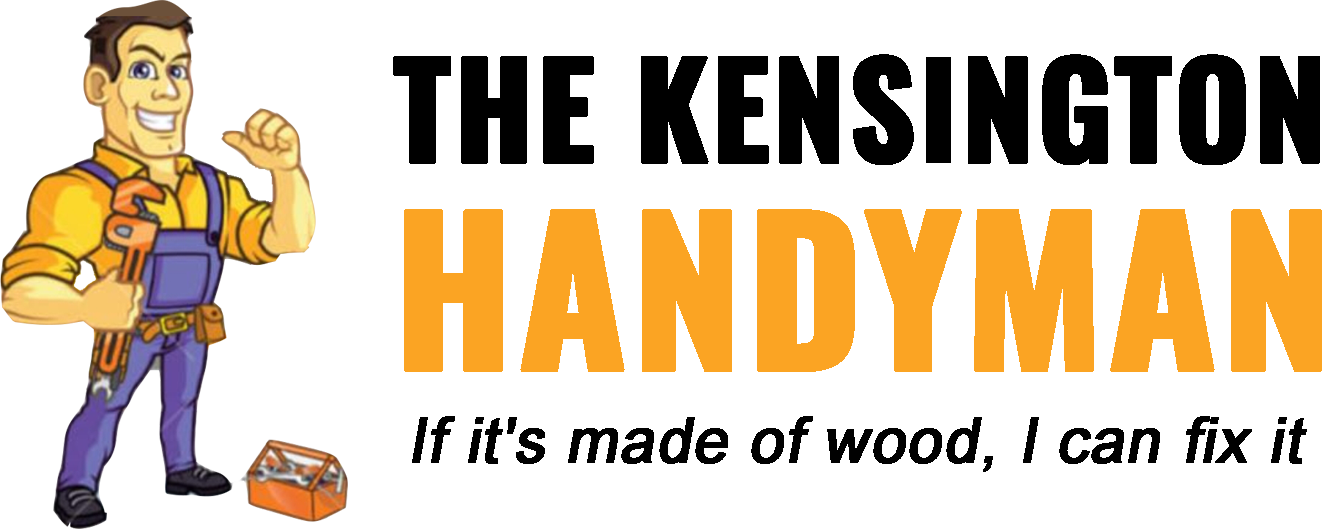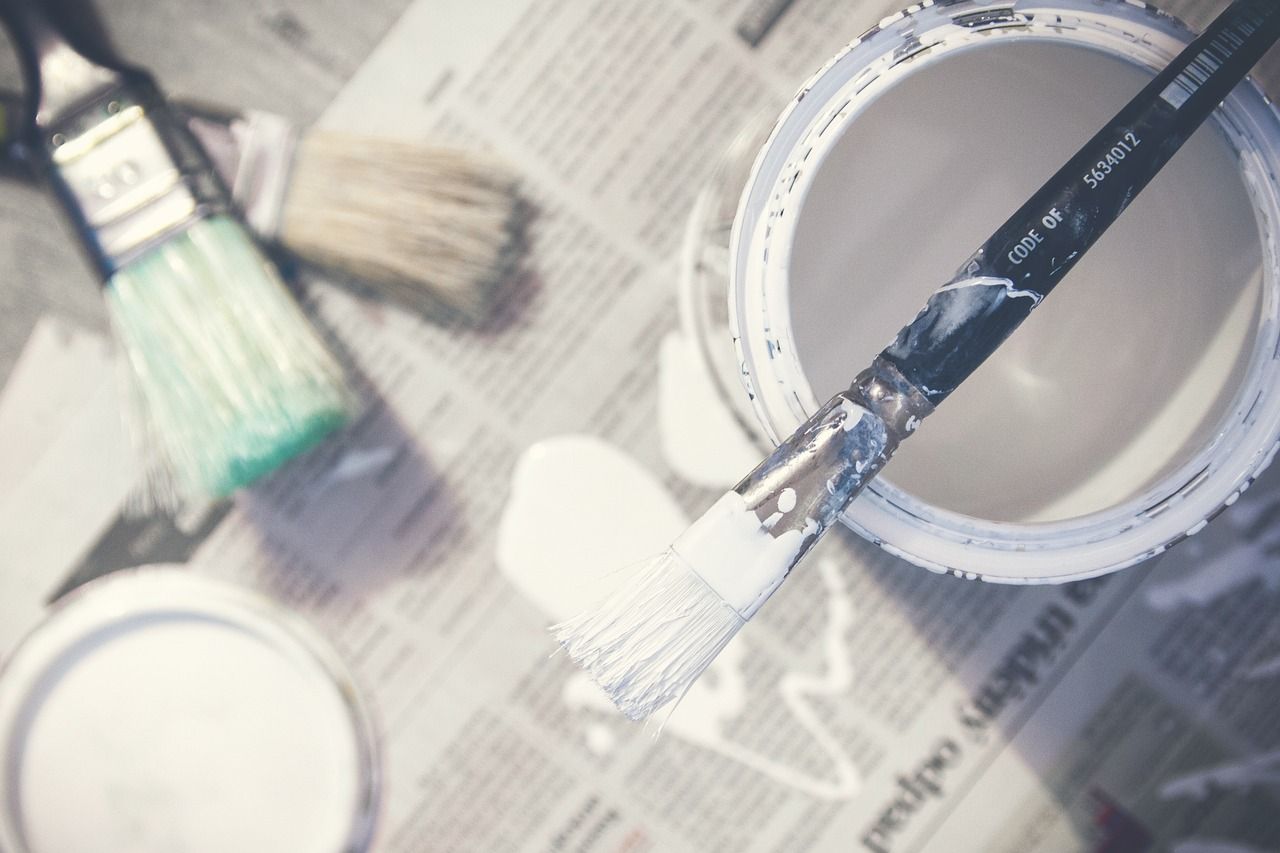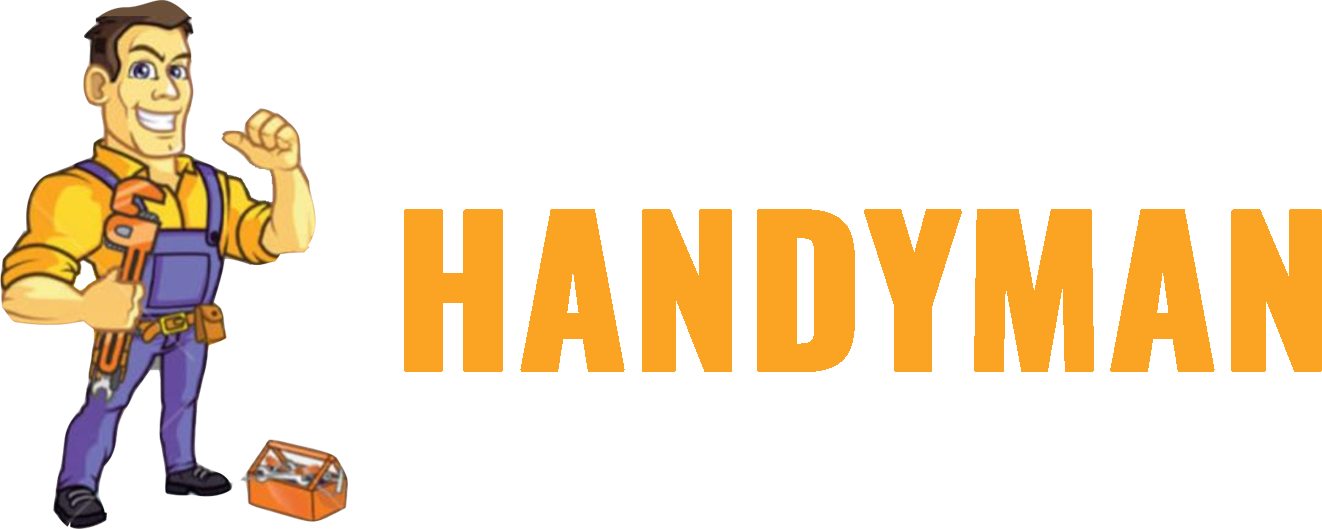Are Home Improvement Services Worth the Investment? An Honest Look
"The bitterness of poor quality remains long after the sweetness of low price is forgotten." - Benjamin Franklin.
Regarding home improvements, the temptation to save money by doing projects yourself can be strong. But as Ben Franklin wisely observed, those initial savings frequently lead to poor quality outcomes that could be more satisfying over the long run. The below essays dive into key considerations around DIY versus hiring professionals. They examine the true costs, benefits, risks, and qualifications. While DIY offers more affordability upfront, the hidden expenses that often follow underscore why quality professional services are frequently worth the investment. Satisfaction rates show most homeowners ultimately feel the added peace of mind is justified.
Trusted experts for any household project - TheKensingtonHandyman!

What are the potential benefits of hiring professional home improvement services like a home office carpenter?
Hiring a professional home improvement service can provide several advantages over completing projects yourself. One major benefit is gaining access to expertise and experience that most homeowners need to gain. Professional services have spent years perfecting their craft, allowing them to work more efficiently and complete higher-quality work. They also know building codes, permits, and best practices that can prevent costly mistakes.
Another major perk is avoiding the hassles of a DIY project. Shopping for materials, renting equipment, disposing of waste, and the physical labor involved can exhaust home projects. Professionals have connections for materials and tools and take care of hauling debris. This saves homeowners significant time and energy.
You can also gain peace of mind by using insured and licensed contractors. If an accident occurs or something is damaged, you have some protection. Professionals often offer warranties, too. Doing it yourself provides no recourse if things go wrong.
For complex jobs like finishing a home office,
pros like a
carpenter bring specialized abilities. They can handle complicated framing, wiring, and decor choices to create a functional and visually appealing space. An amateur is unlikely to have the skills to build customized cabinetry, shelves, and desks.
How can you determine if a home improvement project is a good investment for your home?
Determining if a home improvement is wise requires researching the return on investment and evaluating your needs. Start by figuring out the project cost from estimates. Then, find the average ROI for that type of project. For example, a major kitchen remodel has an average ROI of about 75%, while a minor bathroom update is around 65%.
Next, consider factors about your home. The age, location, style, and size can impact value differently. Upgrades to items most buyers want, like the kitchen and master suite, typically provide bigger returns. Updating outdated or damaged features also boosts value more than luxury add-ons.
Crunching the numbers is key. Will the likely increase in home value exceed what you spend? How long will it take to recoup the expense? Compare ROI calculators online to determine estimates. Also, weigh intangible benefits like enjoying the update.
Getting an appraiser's input can provide clarity, too. They can advise on changes that boost scalability in your market. Carefully evaluating each project guides smart investment choices.
What factors should you consider when deciding between DIY and professional services like home repair London?
Choosing between a DIY project and hiring a pro like a home repair service in London involves weighing several factors. The main aspects to consider are:
- Skill level - Does the project require expertise you lack? If you're inexperienced, avoid taking on electrical, plumbing, or structural work.
- Time commitment - DIY takes more time shopping, prepping, learning new skills, and doing the work. Pros will complete it faster.
- Quality of the finished product - Professionals have the tools and knowledge for top-quality results. DIY often shows imperfections.
- Value of your time - What's your hourly rate at work? The cost of your time on a project may exceed hiring a pro.
- Scope of the project - Small updates or cosmetic makeovers may be DIY-friendly. Major renovations are best left to experts.
- Budget - Get quotes from contractors. Some projects offer big savings by doing it yourself.
- Risks and liability - Mistakes made during DIY cost you. With pros, bonding protects you.
Carefully weighing all these factors helps determine if DIY or the pros make the most sense for your home improvement project.

How do you calculate the total costs of taking on a home improvement project yourself?
Determining the true total cost of a DIY home improvement project requires accounting for more than just the raw materials and supplies. To accurately estimate the overall expense, you need to factor in:
- Tools - Any new tools or equipment needed to complete the job. This may include power tools, ladders, or machinery rentals.
- Labor - Value your time reasonably based on your hourly earnings. Multiply by total hours worked.
- Skill training - Costs of any training or education needed to learn new skills. This could include class fees or materials.
- Incorrect purchases - Budget for return/exchange fees if you buy the wrong materials or supplies. It happens frequently.
- Mistakes - Having to redo work or repairs if something needs to be fixed adds big costs. It's hard to anticipate.
- Hauling fees - Cost of renting a truck or dumpster for debris removal if needed. Don't forget gas and mileage.
- Permit fees - Budget for any required building or contractor permits based on project scope.
- Helper labor - If you hire an assistant, factor in hourly or daily rates. Feeding them adds up, too.
- Safety gear - Equipment like harnesses, respirators, or hearing protection isn't free.
Contingency costs - Have at least 10% extra for unexpected expenses. DIY projects often have surprises.
Tracking all these elements gives a realistic total for what completing the project in a DIY fashion will require. The costs add up fast.
Save time, save money, leave it to TheKensingtonHandyman!
What hidden costs or issues may come up with DIY home projects?
Taking on a major home improvement as a DIY project often leads to unanticipated issues and expenses. Common hidden costs and problems include:
- Faulty execution - Lack of expertise leads to mistakes that become expensive fixes. For example, improper tile setting requiring redo.
- Unexpected delays - Learning as you go drag out project timelines. Longer disruptions can increase costs.
- Injuries - Lack of safety knowledge or equipment can result in medical bills.
- Tool investments - An intimidating project may prompt buying expensive tools you rarely use again.
- Code compliance - Inspectors catching DIY errors that violate building codes means reworking things to meet standards.
- Poor quality results - Many first-timers have subpar outcomes requiring revisions or covering up.
- Stress and burnout - The mental toll of managing an overwhelming project without help takes a real toll.
- Relationship strain - The disruptions of a major renovation can be trying on families and marriages.
- Resale value loss - DIY flaws and imperfections negatively impact a home's future sale price.
Awareness of these common pitfalls helps prepare for how difficult and demanding a DIY project can become compared to expectations.
How do professional services costs compare to doing it yourself in the long run?
At first glance, completing home renovations yourself seems like a cost-saving option over hiring professionals. But when factoring in both short and long-term expenses, the numbers often favor leaving it to the experts.
Though DIY provides big upfront savings on labor, the hidden costs quickly chip away at those benefits. Replacing mistakes, time expenditures, tools, and delays usually make DIY about 60-75% of pro costs.
Pros also complete projects much faster. The hours saved have significant value when considering your earnings. The quality of results also affects long-term savings. DIY flaws decrease your home's resale value. Many buyers avoid homes with obvious amateur work.
Consider safety issues and liability as well. Injuries on a DIY project bring medical bills and potential legal issues. With licensed pros, insurance protections help cover damages.
While pros charge more, that cost difference protects you from common DIY pitfalls. Paying more initially with pros often provides better
long-term value through efficiency, quality, safety, and resale value. The extra expense brings assurance and expertise most homeowners need to gain.
What qualifications should you look for when hiring home improvement professionals?
Selecting the right home improvement pro requires checking credentials, training, and certifications. Key qualifications to look for include:
- Licensing - Contractors should have current valid licensing for your state and project type. This proves legal compliance.
- Insurance - Liability and workers' compensation coverage protects you from liability for injuries or damages. Verify policies.
- Bonding - Bonding guards against potential financial harm from contractor fraud or theft. Fully bonded pros provide security.
- References - Vet companies thoroughly by calling previous client references to confirm quality work and service.
- Certifications - Relevant trade certifications show contractors adhere to safety standards and best practices. Common ones include OSHA, Lead Safety, and EPA.
- Experience - Choose companies with substantial experience completing projects similar to yours. Look for pictures of past work.
- Education - Advanced training and knowledge matter for complicated projects. Many fields now require associate's or bachelor's degrees.
- Reputation - Check ratings on sites like BBB or Angie's List. Also, read online reviews. They offer insight into real customer experiences.
- Memberships - Professional organizations like the NARI demonstrate commitment to excellence and keeping up with industry standards.
Taking time to carefully evaluate each company’s credentials results in finding a qualified pro you can trust. Never settle for anything less.
How can you make sure you choose reputable and reliable home services?
Finding dependable home services requires thorough vetting. Useful tips for identifying reputable providers include:
- Interview multiple companies - Meet in person and ask questions to gauge professionalism. Observe responsiveness.
- Verify licensing and insurance - Check documentation to ensure legal compliance and liability coverage.
- Get the references list- Call them and ask detailed questions about their experience.
- Search online reviews - Look for quality, timeliness, costs, and communication red flags.
- Check with BBB for ratings - A+ BBB-accredited businesses show trustworthiness.
- Ask about guarantees and warranties - Good signs are 1+ year labor warranties and manufacturer warranties on products.
- Require detailed quotes - Itemized estimates show transparency about exact costs.
- Ask about safety processes - Do they follow OSHA guidelines and provide employee training?
- Request timeline - should provide a clear project schedule with start date, milestones, and estimated end date.
- Trust gut instinct - If interactions feel off or communication is poor early on, keep looking.
Taking it slow to thoroughly vet providers protects against choosing disreputable or unreliable services. It’s worth investing ample time.
What benefits come with using insured and bonded home improvement companies?
Selecting properly insured and bonded home contractors provide customers key protections and peace of mind. Key benefits include:
- Injury liability - Should an accident occur, medical bills are covered by workers' compensation, avoiding out-of-pocket costs.
- Property damage protection - Repairs, like broken windows, are covered if mistakes cause damage.
- Theft protection - Bonded means compensation is provided if items are stolen.
- Financial recourse - Insurance and bonding give avenues for recouping losses unavailable to uninsured contractors.
- Company legitimacy - Properly insured and bonded shows that a company is licensed and operating legally.
- Industry compliance - Insured contractors follow regulations and standards for safety and training.
- Project guarantee - Coverages allow companies to offer strong warranties and guarantees.
- Oversight incentives - Contractors must maintain clean records to keep policies/bonds. This deters shoddy work.
- Added accountability - The ability to make claims against policies encourages contractors to meet client expectations.
For homeowners, only using insured and bonded companies provides security and reduces the risks if costly issues occur. The extra diligence upfront brings invaluable peace of mind.
How satisfied are most people who invest in professional home improvement services?
Multiple surveys and industry research data reveal extremely high satisfaction rates among homeowners who hire professional contractors to complete home remodels and upgrades.
In a recent poll by the National Association of Home Builders, 93% of homeowners ranked themselves as “satisfied” or “very satisfied” with their finished projects done by professionals. Only 2% said they were unsatisfied to any degree.
The top reasons cited for their satisfaction included:
- High-quality final results
- Meeting or beating expected timelines
- Good value for the money invested
- High levels of communication
- Professionalism and courteous workers
- Adherence to budgets
Contractor qualities homeowners appreciated most were knowledge, transparency, timeliness, and minimizing disruption.
Other surveys back up these findings consistently. The data affirms investing in qualified home improvement pros yields positive experiences for most homeowners. Choosing to hire the right provider carefully is the key to achieving excellent outcomes.
Conclusion
In closing, while cost will always be a factor in home improvement decisions, it should not be the only consideration. The intangible value of hiring experienced pros is significant when you account for your time, safety, reduced stress, better resale outcomes, and avoiding future problems. Doing thorough research and vetting helps find reputable providers who deliver an excellent overall experience. Their expertise and diligence earn higher costs for many homeowners. As Ben Franklin wisely advised, choosing quality over lower prices tends to pay off in the long run.
Let TheKensingtonHandyman's licensed pros tackle your home repairs at fair rates. Book a visit today!
West London's best Handyman services
Reliable all round services including
Curtains Fitting And Installation
useful links

We are helping to save the rainforest,
one acre at a time

Mentoring businesses with the British Library

Helping create an ethical world

Insured by Simply Business













